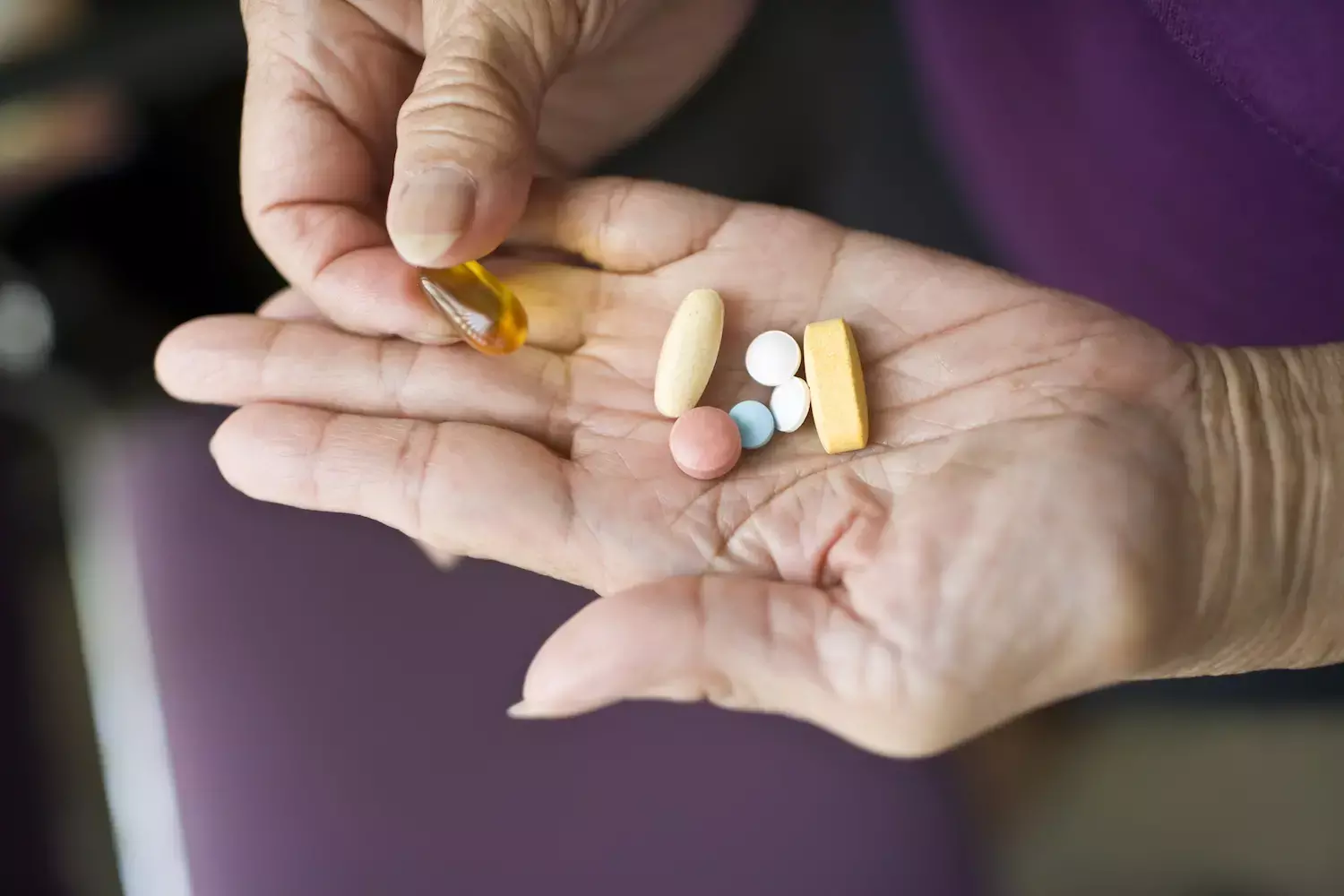- Home
- Medical news & Guidelines
- Anesthesiology
- Cardiology and CTVS
- Critical Care
- Dentistry
- Dermatology
- Diabetes and Endocrinology
- ENT
- Gastroenterology
- Medicine
- Nephrology
- Neurology
- Obstretics-Gynaecology
- Oncology
- Ophthalmology
- Orthopaedics
- Pediatrics-Neonatology
- Psychiatry
- Pulmonology
- Radiology
- Surgery
- Urology
- Laboratory Medicine
- Diet
- Nursing
- Paramedical
- Physiotherapy
- Health news
- Fact Check
- Bone Health Fact Check
- Brain Health Fact Check
- Cancer Related Fact Check
- Child Care Fact Check
- Dental and oral health fact check
- Diabetes and metabolic health fact check
- Diet and Nutrition Fact Check
- Eye and ENT Care Fact Check
- Fitness fact check
- Gut health fact check
- Heart health fact check
- Kidney health fact check
- Medical education fact check
- Men's health fact check
- Respiratory fact check
- Skin and hair care fact check
- Vaccine and Immunization fact check
- Women's health fact check
- AYUSH
- State News
- Andaman and Nicobar Islands
- Andhra Pradesh
- Arunachal Pradesh
- Assam
- Bihar
- Chandigarh
- Chattisgarh
- Dadra and Nagar Haveli
- Daman and Diu
- Delhi
- Goa
- Gujarat
- Haryana
- Himachal Pradesh
- Jammu & Kashmir
- Jharkhand
- Karnataka
- Kerala
- Ladakh
- Lakshadweep
- Madhya Pradesh
- Maharashtra
- Manipur
- Meghalaya
- Mizoram
- Nagaland
- Odisha
- Puducherry
- Punjab
- Rajasthan
- Sikkim
- Tamil Nadu
- Telangana
- Tripura
- Uttar Pradesh
- Uttrakhand
- West Bengal
- Medical Education
- Industry
Drug interaction of DPP4 Inhibitors with some drugs precipitates Hypoglycemia: Study

Dipeptidyl peptidase-4 inhibitors (DPP-4i's), also known as gliptins, are among the newest categories of antidiabetic medications (ADMs). The major benefit of DPP 4 Inhibitors is that it helps to achieve glycemic control without weight gain and have rare hypoglycemic events. However, a recent study warns that DPP4 inhibitors in combination with certain concomitant medication are associated with an increased risk of hypoglycemia. The study findings were published in the frontiers in Pharmacology on 15 April 2021.
Since type 2 diabetes mellitus (T2DM) patients often have comorbid conditions such as cardiovascular diseases requiring the use of additional antihypertensive or antihyperlipidemic agents, it is important to ascertain that the risks of drug-drug interactions when multiple medications are prescribed together. However, little is known about drug-drug interactions between DPP-4i′s and concurrent medications. Therefore, Dr Chin-Ying Ray and his team conducted a study to investigate the drug-drug interactions between DPP-4i′s and commonly concurrent medications, measure the frequency of such co-prescriptions, and describe the associated risk of hypoglycemia in the co-prescribed medications.
In this retrospective study, the researchers included data of 77,047 patients using DPP-4i′s for T2DM from the Chang Gung Research database provided by Chang Gung Memorial Hospital. After reviewing the medical literature for studies describing drug-drug interactions between commonly prescribed medications and DPP-4i′s, the researchers included bumetanide, captopril, colchicine, acetaminophen, cotrimoxazole, and pantoprazole for analysis. The major outcome assessed was hypoglycemia which was determined as necessitating infusion of 2 or more 20-mL ampules of 50% glucose or injection of 1 mg glucagon. They used a generalized estimating equation–based Poisson model for statistical analysis.
Key findings of the study were:
- The researchers noted that the most common medications co-prescribed with DPP4is over all person-quarters were acetaminophen, simvastatin, fluvastatin, and colchicine (all >20,000 person-quarters).
- In follow-up through 31 May 2018, they observed 13,546 hypoglycemia events in 694,300 person-quarters with DPP-4i prescriptions.
- Upon analysis, they found that the combinations of a DPP-4i with bumetanide, captopril, colchicine, acetaminophen, cotrimoxazole, and pantoprazole were associated with an increased risk of hypoglycemia.
- Compared with person-quarters of DPP-4i use alone, they found that the adjusted hypoglycemia rate ratios per 100 person-years were significantly greater for:
◊ Bumetanide: 2.44,
◊ Captopril: 2.97,
◊ Colchicine: 1.87,
◊ Acetaminophen: 2.83,
◊ Cotrimoxazole: 2.27,
◊ Pantoprazole: 3.03.
The authors concluded, "Among patients taking DPP-4i′s for T2DM, concurrent use of such inhibitors with bumetanide, captopril, acetaminophen, and pantoprazole was associated with an increased risk of hypoglycemia compared with the use of DPP-4i′s alone. Physicians prescribing DPP-4i′s should consider the potential risks associated with their concomitant use with other drugs."
For further information:
https://www.frontiersin.org/articles/10.3389/fphar.2021.570835/full#h9
Dr Kartikeya Kohli is an Internal Medicine Consultant at Sitaram Bhartia Hospital in Delhi with super speciality training in Nephrology. He has worked with various eminent hospitals like Indraprastha Apollo Hospital, Sir Gangaram Hospital. He holds an MBBS from Kasturba Medical College Manipal, DNB Internal Medicine, Post Graduate Diploma in Clinical Research and Business Development, Fellow DNB Nephrology, MRCP and ECFMG Certification. He has been closely associated with India Medical Association South Delhi Branch and Delhi Medical Association and has been organising continuing medical education programs on their behalf from time to time. Further he has been contributing medical articles for their newsletters as well. He is also associated with electronic media and TV for conduction and presentation of health programs. He has been associated with Medical Dialogues for last 3 years and contributing articles on regular basis.
Dr Kamal Kant Kohli-MBBS, DTCD- a chest specialist with more than 30 years of practice and a flair for writing clinical articles, Dr Kamal Kant Kohli joined Medical Dialogues as a Chief Editor of Medical News. Besides writing articles, as an editor, he proofreads and verifies all the medical content published on Medical Dialogues including those coming from journals, studies,medical conferences,guidelines etc. Email: drkohli@medicaldialogues.in. Contact no. 011-43720751


